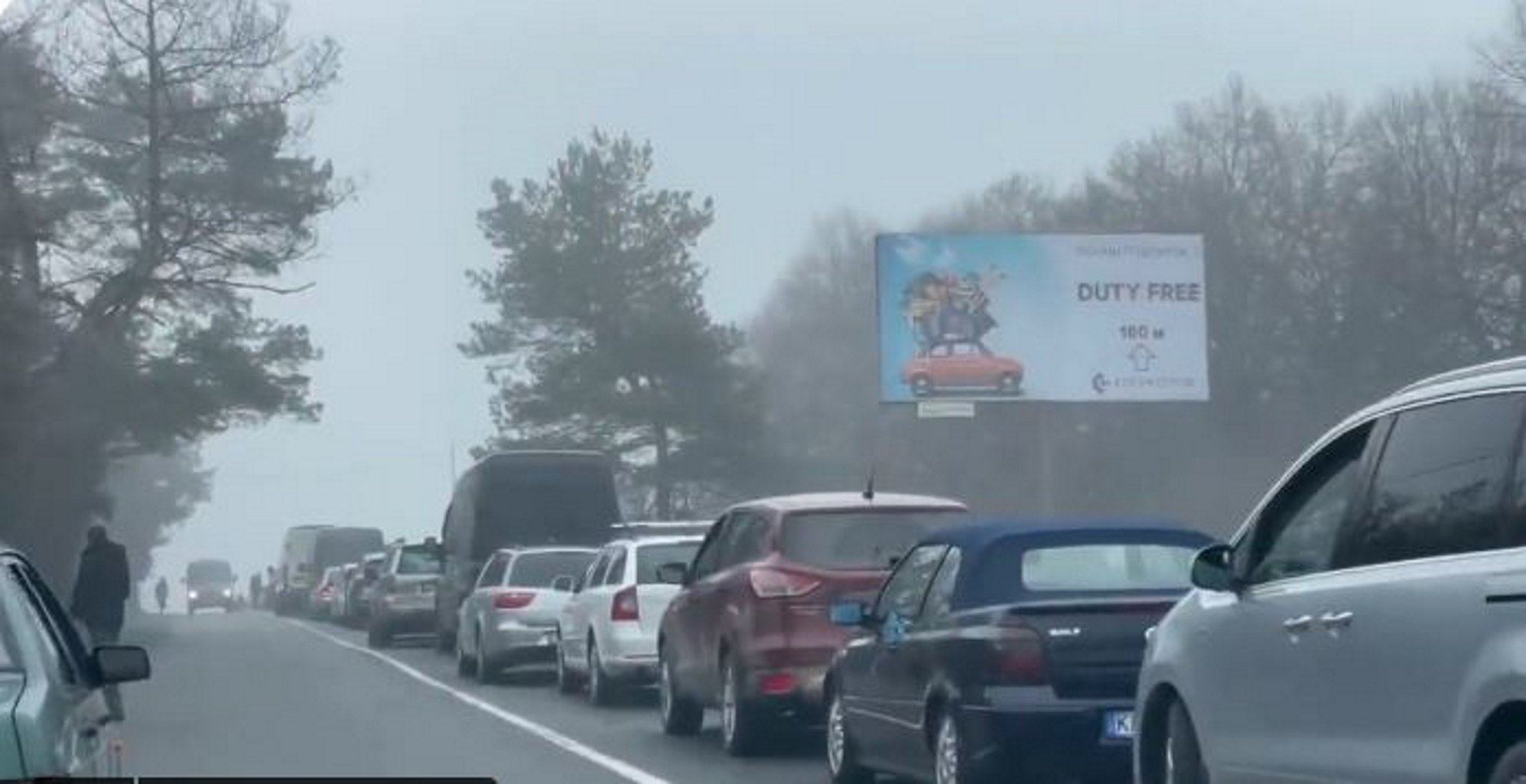With Russia's attack on Ukraine having begun less than 24 hours ago, a first wave of refugees has also been produced. Tens of thousands of Ukrainians have chosen to flee the country via the borders with Poland, Slovakia, Romania and Moldova. All indications are that if the conflict goes on for long, the influx of people will increase in these countries and a humanitarian drama will begin. Government sources in these countries bordering Ukraine have indicated that there is currently no massive influx of refugees, but local media and eyewitnesses have warned that foot traffic is on the rise. Alexander Bazhanov walked with his wife and son across the Polish border crossing, with only a few bags containing their belongings. He told Reuters that he wanted to go to Spain, where his father lives. On the border with Slovakia, on the other hand, there are hundreds of cars and vans waiting to cross the border.
Germany will provide support to Poland and other Eastern European countries that will have to receive the refugees, and is prepared for all scenarios, interior minister Nancy Faeser said. Prior to the Russian invasion, German media quoted estimates that between 200,000 and one million Ukrainians could flee to the European Union as a result of the war. Poland is ready to accept migrants and has prepared hospitals and a train to transport Ukrainians in case of injuries, according to the government. The German municipalities association has called on the federal government to involve the local councils in the reception of Ukrainian refugees, and asserted that Germany must prepare quickly. "We can't wait till they start arriving. And most importantly, keep in mind that they won't just be staying here for three weeks," Gerd Landsberg, the organization's general manager, told the Stuttgarter Zeitung newspaper. The mayor of Berlin, Franziska Giffey, announced that the German capital is offering to host refugees. Moldova is also preparing for the reception of refugees, and 4,000 people entered this Thursday afternoon. "The first Ukrainian citizens are arriving in Moldova, with more than 4,000 border crossings today. The government has deployed temporary location centres near Palanca and Ocnita. Our borders are open to Ukrainian citizens who need transit or a place to safely stay," said Moldovan president Maia Sandu.
First 🇺🇦 citizens arrive in 🇲🇩, with over 4000 crossings today. The govt has deployed temporary placement centers near Palanca and Ocnița. Our borders are open for 🇺🇦 citizens who need safe transit or stay. pic.twitter.com/F0NsQcKx02
— Maia Sandu (@sandumaiamd) February 24, 2022

